Google has clearly indicated that it is fine with AI-generated content as long as it is valuable. This means that there is no problem until AI-generated content leads to the results manipulation. Moreover, Google has also revised its guidelines for product rating. Product reviews generated from AI-software will be marked as spam. This is not it, it can further lead to the suspension of the ID as well. The core reason behind this decision is to reduce the chances of spamming. This way, fake reviews would be identified and action could be taken. Under this new policy, Google is not accepting contents for reviews by automated programs. According to google, legitimate reviews would be ensured through this process. Google has indicated to use a mix of AI techniques and human-based assessment to implement this policy. Custom CMS solutions is one the tools that can be used to tackle this issue of fake product ratings.
What does this imply for users?
The purpose of this is to provide authentic consumer experiences to users. The company is taking steps to eradicate fraudulent and misleading information. This would create a transparent and fair review system. To maintain company’s values and a trustworthy environment, Google’s latest policy has been to accomplish this broader goal. As a result, users can expect a more effective and reliable system with the presence of customized CMS services. This effort is to punish the policy’ violators.
Is AI-Generated content really a Problem?
It is essential to understand that strict policy regarding AI-generated content is only limited to product reviews. However, AI content raises several considerations and concerns such as content reliability, authenticity, ethical use, content specifics and content relevance.
Google, being the largest search engine greatly supports the AI-generated content in various aspects. But Google acknowledges the fact that AI alone cannot exceed human oversight. Together with human capabilities, AI can be aligned with quality and relevance. Moreover, clear principles and guidelines of AI content can ensure its correct and ethical usage. This means maintaining transparency and integrity across content. Disallowing the AI-generated content in reviews can enhance search engine rankings and drive organic traffic.
AI-generated reviews have the capability to affect your rankings in the negative way by impacting value of the content. This is why we propose that you focus on producing valuable information for your products. This could be done with the help of specialized CMS solutions.
How reviews impact SEO?
SEO experts rely on positive reviews to increase organic traffic and drive great search engine results. The new policy of Google encourages the use of CMS solutions to attain the aim of this policy.
Search engines emphasize on originality of materials rather than AI-generated reviews that do not have any practical standards. For instance, Google’s latest update of SGE retains people on Google for a longer time period. It provides users with tons of answers. Moreover, it provides the facility of refining searches to get specific answers.
Google analyzes the text of the review to identify if it is an automated content. Machine-learning algorithms help in determining spam-like and suspicious activities. These activities can include specific patterns, general comments or language problems.
Custom CMS solutions can incorporate high-quality AI content to enhance site performance and user experience.
Businesses and individuals can work on prioritizing content based on their services. This would ensure effective and engaging content to cater the needs of users. This approach goes well in-line with the approach of Google. Additionally, it improves the value of the content.
Google penalizes your website by rejecting the reviews that are generated from AI. If these fake reviews are regular, then it may result into website suspension. One of the problems is the reduction in search rankings of the website’s contents. Google regularly reviews and upgrades its standards, facilitating the use of customized solutions for SEO optimization.
Google’s recent Policy Clarifications related to SEO:
1) Plagiarism Reviews: Plagiarism has to be avoided by prioritizing original content. Reviews have to be genuine from one’s own experiences. Tailored CMS solutions can provide tools that indicate content’s uniqueness and originality.
2) Personal and Confidential Information: Your website has to be safe where users can share their thoughts without the fear of exposing their personal information. Leveraging CMS solutions with greater security can prevent the exposing of sensitive information. This aligns with the policy of Google.
3) Sexually Explicit Content: For Google, sexually explicit content is not negotiable. The CMS system has to be equipped with filters to identify such data and remove them immediately.
4) Links to Viruses and Malware Attacks: Any type of phishing activity or attacks can come in conflict with Google’s policies. The use CMS can improve the authenticity of reviews by highlighting real reviews and maintaining superior SEO performance.
5) Interest Paid Reviews: Google does not authorize interest paid or forged reviews. Reviews have to be real, which can be effectively checked by individualized CMS solutions.
6) Spam: Google takes action on spam contents. To keep your website free from spam content, specific solutions can be employed. This will maintain the integrity of your content.
7) Maintaining Cleanliness Reviews: Google discourages reviews that contain vulgar, abusive or inappropriate content. Tools of CMS elements can help in preventing the publication of such content.
8) Copyrighted Material: reviews do not have to violate others’ rights. Regarding copyrights, custom CMS techniques can help in identifying and managing intellectual property rights. This also includes adhering to Digital Millennium Copyright Act (DMCA).
9) Unrelated Reviews: The tools and elements of CMS also play a critical role in managing content authenticity and relevance. For example, unrelated reviews can be related to political or social controversies or personal attacks. Your custom CMS system can help in displaying relevant content.
10) Cross-Promotion: Cross-promotion, especially of unrelated products can reduce your content’s relevance. A sophisticated CMS focused on special solutions can allow you to manage your content effectively.
11) Contacts: Google does not encourage contact details like email addresses and phone details to be included in reviews. Your special solutions of CMS can manage to ensure content’s relevance.
12) Hazardous Products: Lastly, promote content that does not convey information about hazardous products. Custom solutions can be effective in reviewing the content that violates this guideline. Example of hazardous products content may be related to weapons, controlled pharmaceuticals and tobacco products.
How to Skyrocket Your Website’s Ranking with the Latest E-E-A-T Principles?
Google has explained in its latest policy about the elements it considers in a content to rank it appropriately. Following the E-E-A-T principles, your website can easily in Google search results. Moreover, by following these, any the of punishment can be avoided in the future.
The core purpose of this update is to craft amazing content with the help of AI. Google maintains this commitment to provide useful insights into the search results, indicating the significance of customized solutions.
Three Considerations for Maximizing AI Writing Tool Experience:
1) Maintaining Quality Standards: Prioritizing quality is essential when AI content is considered. The content must ensure that it meets Google’s quality standards. This is important when discussing custom CMS tools.
2) Avoiding Twisted Manipulation: It is vital to avoid manipulation in terms of searching and ranking. This is significant in the presence of CMS structure because manipulation can harm the website’s ranking.
3) Placing the Community First: Using specific CMS solutions, the content must prioritize the needs and concerns of users. This approach would help customers to find their answers to their issues.
How does Google detect AI Content?
Google evaluates and ranks AI content based on its relevance, authenticity and accuracy to SEO practices. This includes algorithms of keywords, backlinks and user engagement metrics. High-quality content on help in achieving desirable rankings. Despite Google’s ability to identify AI generated content, what matters is the quality of content. As long as your content according to CMS technique follows the EEAT’s principles, the quality of content remains the prime motive.
Does Google appreciate AI-generated Content?
Google values high-quality and relevant content. This content can be produced by humans or generated through artificial intelligence. If the AI-generated content provides value to users and adheres to Google’s guidelines, it will be ranked positively. The rationale behind these updates is to build trust. Google values authentic information and useful content. To prevent the spreading of misleading information, Google ensures a fair system. Google aims to improve the experience of users and maintain a reliable system for its users.
Adapting your content according to particular CMS services can help in meeting Google’s current guidelines and standards. Focus on quality, accuracy, relevance and authenticity can lead to greater user satisfaction, visibility and impact.



